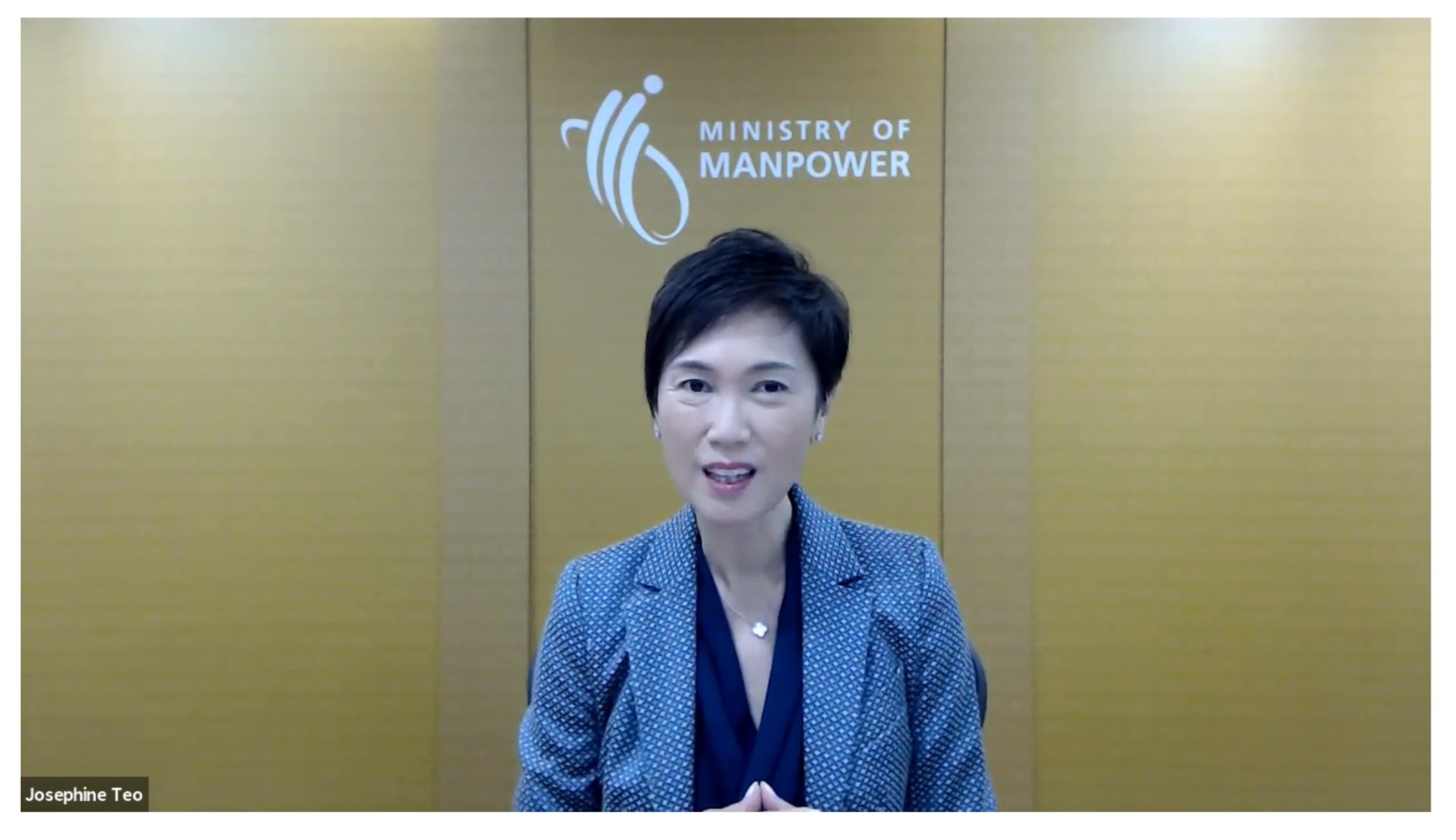HR Tech Festival Asia Online 2020: Navigating the future of work and HR
- Shawn Liew

The future of work is here, declared Josephine Teo, Minister, Ministry of Manpower and Second Minister, Ministry of Home Affairs, Singapore.
Kicking off HR Tech Festival Asia Online 2020 with her keynote address, Teo said, “Prior to COVID-19, the world of work was already transforming due to technological advances and shifts in global supply chains. Our priority was to equip our workforce with the agility to adapt to these changes, through skills mastery and lifelong learning.
“In many ways, the pandemic has accelerated this transformation and reinforced the need for countries to develop their workforce and adapt faster to these changes.”
While highlighting that Singapore, like many countries, has not been spared from the effects of COVID-19, Teo is quick to point out that in managing the crisis, opportunities arise to prepare an eventual economic recovery and for the future of work.
In shaping the future of work, cooperation among multiple stakeholders will be crucial, as she explained, “COVID-19 has been a forceful reminder of the urgent need for governments, businesses and workers to come together to prepare for the future of work.
“Many shifts arising from the future of work have accelerated, and their impact sharpened. Each of us has a part to play in embracing the opportunities and challenges that lie ahead, and in navigating the new era of HR and the workplace.”
In deciding how to create value in the future, HR and business leaders need to recognise that an organisation that succeeds in the marketplace is most important for employees, suggested Dave Ulrich, Professor at the University of Michigan and Partner of RBL Group.
In his keynote presentation, Ulrich highlighted that while there should be no doubt that talent matters, it is the organisation that matters more. “The organisation has four times the impact of the individual in creating business success,” he explained. “Bring the right people in and make sure they are made of the right ingredients.
“For existing talent, make sure you move them through the organisation, help them learn and create career mobility. Remove employees who don’t perform well and retain the right people.”
Organisations also need to ask themselves these questions: How do they keep employees engaged to give their best efforts, how do they help employees find meaning at work, and how do they help employees find meaning at work?
HR should also concentrate on two key agendas, according to Ulrich. “Design the right HR organisation focused on outcomes and transform the HR organisation to meet the needs of those whom we serve. Build a value department that shapes the value outside in and build a sustainable organisation capability by creating an organisational system that is successful.”
As online leadership development continues to be reshaped in the wake of the COVID-19 pandemic, Elisa Mallis, APAC Managing Director, Center for Creative Leadership (CCL), was keen to debunk what she considers myths about future-fluent leadership development in Asia.
Firstly, some consider Asian leaders to be harder to develop to take on senior global leadership roles. In reality, organisations must curate compelling development plans to create a strong pipeline of global Asian leaders. Organisation posture, said Mallis, may be the biggest stumbling block to creating leaders in Asia.
Instead of focusing efforts primarily on top-level executives, Mallis also urged leadership development to happen across multiple levels in the organistion to maximise ROI on development initiatives.
Lastly, is online or digital learning less effective than classroom learning? “If designed and delivered with the learner objectives in mind, digital learning can be equally impactful as classroom learning,” Mallis concluded.
With remote working likely to remain prevalent in 2020, how can organisations improve the employee experience (EX)?
First and foremost, understand what flexibility is and is not, urged Tim Sackett, president, HRU Technical Resources. “Leaders need to understand that if someone is working remote, and they can be much more productive, we shouldn’t assume that they should work longer hours or the same hours as an office environment,” he added.
Calling flexibility in the workplace the “next big thing”, Sackett highlighted that worker flexibility means caring more about outcomes and less about the ‘how’. It also means setting clear, concise goals and targets, while recognising that different employees have different times when they are most productive.
As HR leaders, give your teams the right tools to be productive, prioritise remote L&D, and never allow an employee to feel disconnected from the corporate entity, even if they might be working from home, Sackett concluded.
Shaped by the pandemic, employees today are increasingly expecting flexibility in terms of where and what time to work, as long as they are supported by the right technologies, said Yvonne Teo, Vice-President, Human Resources, Asia Pacific.
More importantly, they expect this flexibility to continue now and into the future, Teo highlighted. Together with John Antos, VP, Strategy & Marketing, Asia Pacific, Teo presented some key findings from the recently released Workforce View 2020 study by ADP Research Institute.
In Asia-Pacific, due to a combination of remote work and job security, some 28% of employees where putting in an additional 11 hours of work weekly by May 2020. In the same period, 44% of employers had implemented flexible working policies, while written flexible working policies nearly doubled in Asia Pacific between January (28%) and May (53%).
This, reported ADP, is leading to the trend of flexible working going mainstream, as leaders sough to better navigate the balance between leadership roles and employee management.






